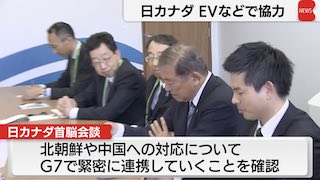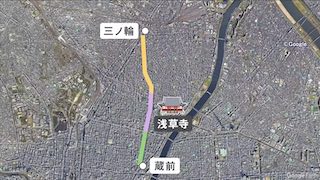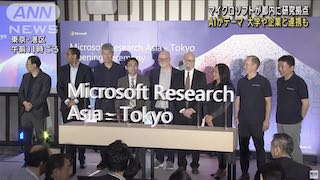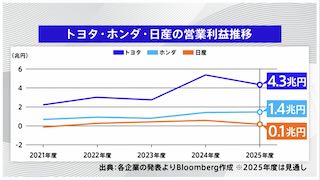TOKYO, Feb 20 (News On Japan) - The Nikkei average stock price is nearing its all-time high from 34 years ago. We compare the "bubble period" with today and explore the impact on daily life.
Despite stock prices reaching levels comparable to the bubble period, it doesn't necessarily indicate overall economic prosperity.
Hibiki Maoniko, Anchor: The Nikkei average stock price approached its all-time high on the 16th, but why is there a lack of tangible impact?
The all-time high of 38,915 yen was recorded in 1989, during the bubble era. This amount was approached on February 16th.
Factors contributing to the current stock price levels include the strong performance of Japanese companies dealing with information technology, such as semiconductors and generative AI, attracting foreign investors due to the weak yen, and a shift towards Japanese stocks as the Chinese economy slows down.
Furthermore, an increasing number of companies are reporting record-high net profits for three consecutive years, mainly among listed large corporations.
We spoke to N-Star commentator Harold George May, who said, "There is a recovery in demand since the end of the pandemic, but it's not a widespread economic boom like during the bubble period." May, who has served as a director for various companies, shares his perspective.
Harold George May: I started my career right in the middle of the bubble. But we must remember that the term "bubble" didn't even exist back then.
The Japanese economy was unstoppable, and there was a sense that it might become the world's leading economy. The mindset was all about working 24/7 without even thinking about savings.
The assumption was that income would keep coming in, so spending it all was fine. This complacency was widespread in society.
Inoue Takahiro, Anchor: Those from that generation could have been a bit more prudent, but the bubble period was marked by strong domestic demand, with finance and real estate booming and wages rising.
However, today's stock market rise is driven by foreign investors, without a corresponding increase in wages. Moreover, Japan's GDP has been negative for two consecutive quarters, so there's no real sense of improvement.
The only tangible sign might be the performance graph of NISA investments. There's really nothing else that feels real.
Harold George May: Back then, we weren't thinking about savings or working hard for the future. It was all about living day to day.
Inoue Anchor: But that mindset didn't cause any problems.
Harold George May: We only thought things would get better.
Looking back, it's easy to see the overheating and data, but at the time, we were completely unaware.
■The challenge lies in wage increases for small and medium-sized enterprises, which account for 70% of domestic employment.
Hibiki Anchor: Even though the Nikkei average stock price is nearing its all-time high, there's no sense of security in our lives.
We asked people about the impact on their lives, and here are some responses:
60-year-old self-employed: "It feels like only the stock market is rising on its own. There's no change in everyday life, just continuous price increases."
40-year-old company employee: "There are only price hikes, and my own life hasn't improved as wages haven't risen. I don't feel any better."
Regarding the possibility of future wage increases, Saizuke Sakai, Chief Economist at Mizuho Research & Technologies, says, "There's a trend of wage increases centered around large corporations with good performance in semiconductors and information technology (generative AI)," but it's not just about large companies.
Harold George May: That's the key point. For society to improve, wages need to increase.
Indeed, according to the Labor Administration Research Institute, the average wage increase for prime-listed companies is 3.7% in 2023. So, companies with good performance are seeing increases, but the point is that, according to the Japan Chamber of Commerce and Industry, about 70% of Japan's employment is in small and medium-sized enterprises. These SMEs find it difficult to raise the prices of their products or services.
As a result, they feel a dilemma in raising wages, which we must not forget.
Inoue Anchor: According to a survey conducted by the Japan Chamber of Commerce and Industry in January, about 60% of SMEs plan to raise wages in 2024. So, there's an increase from 2023.
Therefore, a positive cycle is starting. It's crucial for SMEs not to have to cut corners and to be able to pass on the costs of raw material increases in their product prices, leading to healthy inflation. This is a critical moment.
Source: TBS















